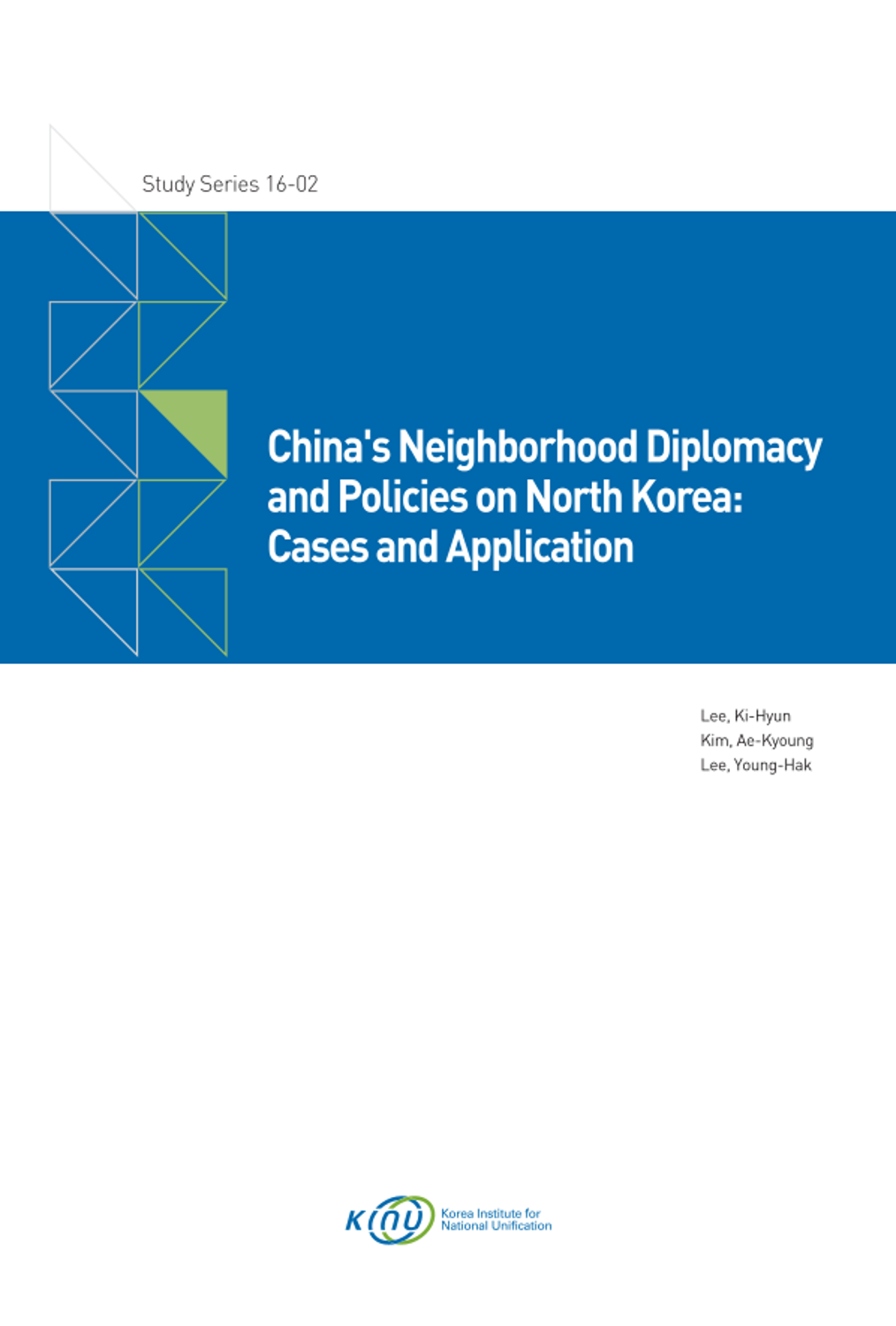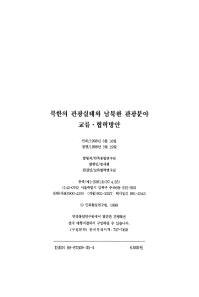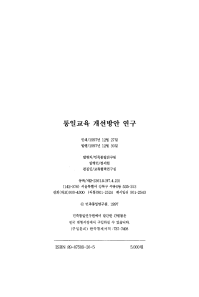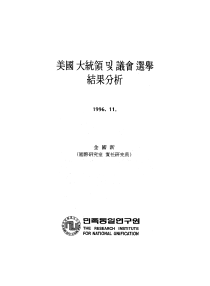
연구원발간물Study Series 2016-02
China´s Neighborhood Diplomacy and Policies on North Korea: Cases and Application
- 발행사항
- Seoul : Korea Institute for National Unification, 2016
- 형태사항
- 59p. ; 23cm
- 총서사항
- Study Series
- ISBN
- 9788984798410
- 청구기호
- 000 SS16-02
소장정보
| 위치 | 등록번호 | 청구기호 / 출력 | 상태 | 반납예정일 |
|---|---|---|---|---|
이용 가능 (2) | ||||
| 1자료실 | G0016110 | 대출가능 | - | |
| 1자료실 | G0016111 | 대출가능 | - | |
이용 가능 (2)
- 등록번호
- G0016110
- 상태/반납예정일
- 대출가능
- -
- 위치/청구기호(출력)
- 1자료실
- 등록번호
- G0016111
- 상태/반납예정일
- 대출가능
- -
- 위치/청구기호(출력)
- 1자료실
책 소개
The main purpose of this study is to analyze cases of China’s neighborhood (zhoubian) diplomacy that might influence China’s North Korea policy and investigate the substantial correlation between China’s neighborhood diplomacy and its policies on North Korea. In the end, it seeks to predict this correlation and China’s future trajectory in its North Korea policy.
To begin with, major issues were selected that may arise between China and North Korea as the following. First is the nuclear issue. How will China react in the process of North Korea’s enhancement of nuclear and missile capabilities? This question was brought up to identify whether we could find a consistent logic or pattern in policies toward neighboring military powers such as India and Pakistan. Second is the issue related to China-DPRK economic cooperation and China’s investment in North Korea. With China’s economic strategy expanding across the neighboring countries and relations with North Korea normalizing, this allows envisaging how the bilateral economic cooperation will unfold by looking into what China’s economic interests are concerning North Korea and what characteristics does its economic cooperation with other neighboring countries have. Third is the issue in relation to China’s intervention and future measures in case of a contingency in North Korea. When a sudden change or crisis occurs in North Korea, China’s justification and means of intervention may differ depending on how Beijing perceives the crisis in North Korea. It will refer to neighboring states’ cases to infer implications. Fourth is the possibility of a humanitarian disaster. Similar to North Korea’s food shortage and refugee crisis during the so-called “Arduous March,” China faces sundry humanitarian crisis issues with its neighbors. When China's principle is found that is behind its dealings with humanitarian crises and refugee issues through the cases of neighboring countries, China’s response in case of similar events in North Korea could be forecasted. Fifth is the alliance. Obviously, while China officially proclaims non-alignment policy, as long as DPRK-China Mutual Aid and Cooperation Friendship Treaty stands, it is the dominant view that the DPRK-China alliance is still valid. Previously, when China broke alliances, this was mainly due to interests rather than ideology. With this in mind, it is interesting to see how the bilateral alliance, a bloodshed one as some say, evolves. Finally, there is the possibility of conflict related to national boundaries and territories. Whereas it seems that no imminent issue exists between North Korea and China in the short term regarding boundaries, a unified Korea may raise these issues with China and extend to the problem of historical interpretation in the long term. As such, six issues in total were touched on.
Next, case studies were carried out in order to deduce consistent rules and patterns in China’s previous cases of neighborhood diplomacy for each issue. This is an attempt to examine the correlation between China’s neighborhood diplomacy and its policy on North Korea and to predict China’s future diplomatic behaviors towards North Korea. In particular, this study probes into the position and characteristics of China’s North Korea policy in the context of neighborhood diplomacy with comparative analysis for each issue and take this to prepare a new solution and an exit strategy in South Korea-China cooperation to induce changes in North Korea.
목차
1. Introduction
2. China’s Policy on Nuclear-armed Neighbors and North Korean Nuclear Program
3. China’s Economic Strategy on Its Neighbors and DPRK-China Economic Cooperation
A. North Korea’s Geopolitical and Geoeconomic Values
B. Connection with National Development Strategy
C. Autonomy of Regional Government
D. Two Faces of Qiutongcunyi (Seeking Common Grounds While Putting Differences Aside) ·
4. China’s Policy in the Event of Crisis in the Neighboring States and North Korean Crisis
5. China’s Humanitarian Policy toward Neighboring Countries and North Korea
6. China’s Alignment Policy toward Neighboring States and North Korea
7. China’s Territorial Policy toward Neighboring States and Unified Korea




